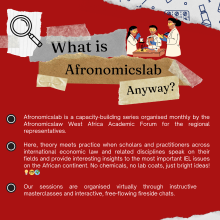BILC 2026 Call for Papers - International Economic Law in a Fractured Global Order (13-14 June 2026, Bogazici University, Istanbul)
We invite interventions from scholars of international law, international relations, and germane fields exploring the future of international economic law.
